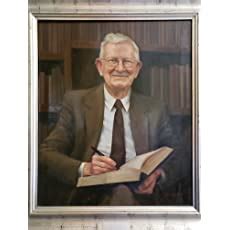A Quote by J. C. Ryle
Our prayers may be weak, stammering, and poor in our eyes. But if they come from a right heart, God understands them. Such prayers are His delight.
Related Quotes
. . . the number of prayers we say may contribute to our happiness, but the number of prayers we answer may be of greater importance. Let us open our eyes and see the heavy hearts, notice the loneliness and despair; let us feel the silent prayers of others around us; and let us be an instrument in the hands of the Lord to answer those prayers.
God shapes the world by prayer. Prayers are deathless. The lips that uttered them may be closed to death, the heart that felt them may have ceased to beat, but the prayers live before God, and God's heart is set on them and prayers outlive the lives of those who uttered them; they outlive a generation, outlive an age, outlive a world.
On the ground of our own goodness we cannot expect to have our prayers answered. But Jesus is worthy, and for His sake we may have our prayers answered. There is nothing too choice, too costly, or too great for God to give Him. He is worthy. He is the spotless, holy Child, who under all circumstances acted according to the mind of God. And if we trust in Him, if we hide in Him, if we put Him forward and ourselves in the background, depend on Him and plead His name, we may expect to have our prayers answered.
Prayers prayed in the Spirit never die until they accomplish God's intended purpose. His answer may not be what we expected, or when we expected it, but God often provides much more abundantly than we could think or ask. He interprets our intent and either answers or stores up our prayers. Sincere prayers are never lost. Energy, time, love, and longing can be endowments that will never be wasted or go unrewarded.
The secret of our lost mode of prayer is to shift our perspective of life by feeling that the miracle has already happened and our prayers have been answered. Now we have the opportunity to bring this wisdom into our lives as prayers of gratitude for what already exists, rather than asking for our prayers to be answered.
Prayer assumes the sovereignty of God. If God is not sovereign, we have no assurance that He is able to answer our prayers. Our prayers would become nothing more than wishes. But while God's sovereignty, along with his wisdom and love, is the foundation of our trust in Him, prayer is the expression of that trust.



































